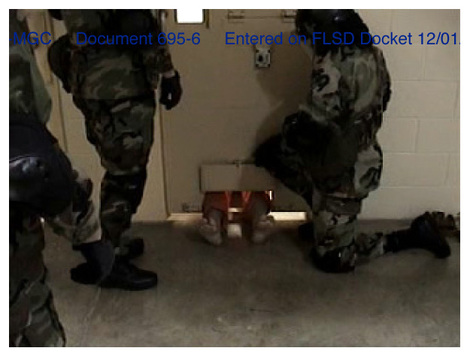For the defense, it's further proof that if you can convince an American jury that a man in the dock had anything to do with al-Qaeda, you can pretty much bank on a conviction no matter how tenuous the evidence. And in this case, all the government's resources were brought to bear upon this trio of (let's face it) losers who were so inept as terror "trainees" that the feds gave up their trail in 2000...
For this jury, the simplest explanation was that these guys were up to no good. They were acting suspiciously (or at least not innocently). They were talking like spies (or at least not like relief workers). Teenagers are expected talk and text in code so that their parents don't know what they are up to. Makeshift humanitarians are not.
None of this in my view necessarily justifies today's verdicts -- but it certainly in my mind helps explain them.
In the outrage some of us have expressed with respect to Padilla's fate, it's worth stating a few things that are often left unsaid. Defending Padilla's rights as an American citizen to a fair trial is not the same as believing that terrorist plotters and cells should not be aggressively investigated and followed. It isn't to say that we don't have a legitimate interest that terrorists captured in a genuine battlefield in a foreign land be taken hors de combat. It is to say that if the war is to be conducted against American citizens and anywhere in the world, then such citizens must retain the protection of the Constitution and habeas corpus. It is to say that prisoners of war should be treated in accord with the Geneva Conventions.
It is to say that the power to wiretap by the executive must have a judicial check on it, to prevent abuse. It is to say that torture - under any euphemism - must become illegal again and taboo. It is to say that the purpose of imprisoning terror suspects is to prevent terror crimes and attacks, and punish crime and acts of war, not to create a pool of torture subjects for the purpose of intelligence gathering.
I am prepared to believe that the jury made the right call. But the path to that call remains indefensible. A reader put it best:
Leaving aside the torture issue (which is a big aside) I am not that concerned that Guantanamo exists. Our military is capturing people on battlefields and they need to be placed somewhere. I do think there needs to be a better procedure to determine whether those people are POWs or illegal combatants, but I do not want the military in Afghanistan, Iraq, and elsewhere to be fighting a police action.
But the Padilla case was different. Here was a guy arrested by law enforcement inside the US (though, as he was at an airport, arguably legally outside the country). He was not captured on a distant battlefield holding a rifle or even in the process of engaging in a terrorist act. The fact it took the government three years to try him, and everything that happened in between is a travesty.
